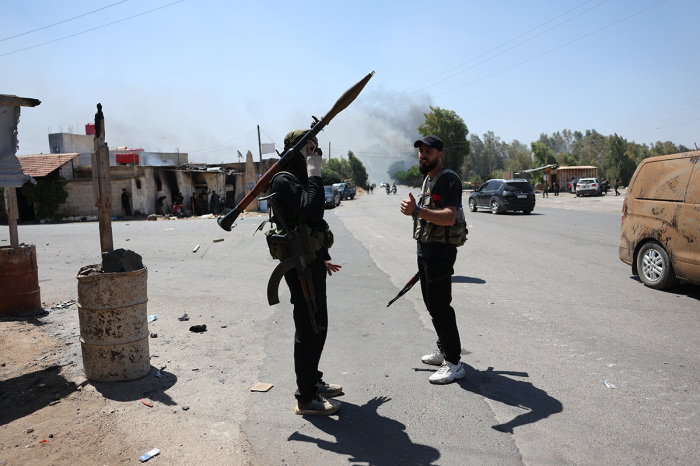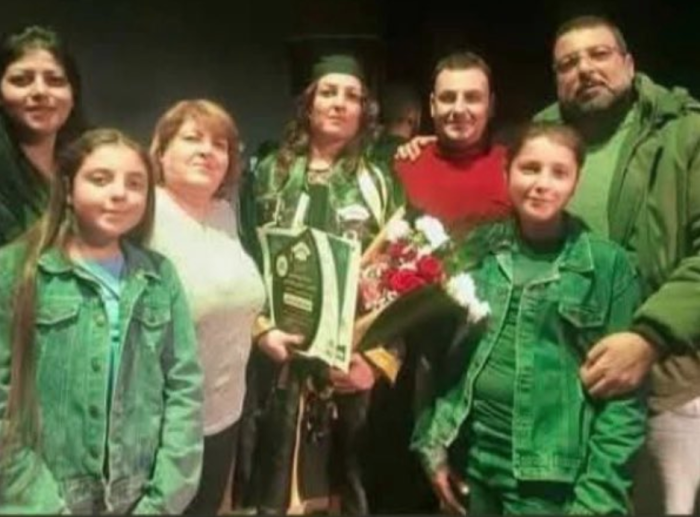
An Evangelical pastor and roughly 20 of his family members were killed over the weekend in Syria in what church officials described as a targeted massacre. The victims included his parents, siblings, their children and other close relatives.
Pastor Khalid Mezher, who led the Good Shepherd Evangelical Church in Suwayda, had converted from the Druze faith to Christianity along with his family several years ago, according to Premier.
He was widely known in the region for his ministry work and remained in Suwayda despite growing tensions and threats of violence.
Mezher and his extended family were killed during ongoing armed conflict in the area between Bedouin fighters and Druze militias, which has claimed more than 250 lives over the past week.
The mass killing drew sharp condemnation from Christian leaders and religious organizations across the region.

The Archdiocese of Bosra, Hauran, Jabal al-Arab and the Golan released a statement describing the continuing violence as “savage” and said the fighting had taken the lives of “young and old,” Syriac Press reported. The archdiocese also appealed for urgent humanitarian intervention, citing heavy shelling, missile attacks and a lack of aid in Suwayda, which has remained under siege for 10 days with no food, water, electricity or internet.
An Arab pastor, writing to supporters, said the church in Suwayda is now “scattered” and that many members are unaccounted for, according to All Arab News. The letter stated that Pastor Mezher was killed “for his faith,” along with members of his family. The pastor added that Christians remaining in the region are “cut off” from food, water, electricity, internet and hope for safety.
The violence comes amid a fragile U.S.-brokered ceasefire in southern Syria, which appears to have failed to halt sectarian clashes. Fighting between Sunni Bedouin groups and Druze militias erupted in the wake of the fall of Syrian President Bashar al-Assad in December 2024, after 13 years of civil war. Despite announcements of a truce, the area remains under bombardment, and civilians report no relief from shortages or insecurity.
Bedouin groups, mostly Sunni Muslim, and the Druze minority have accused each other of attacks and reprisals.
The government under President Ahmed al-Sharaa has played an active role in the conflict in Suwayda. Initially, government forces reportedly fought alongside Bedouin groups but later shifted their position, clearing Bedouin fighters from the city and deploying security forces to enforce ceasefires and oversee evacuations.
The government has claimed its aim is to restore order, prevent renewed clashes and integrate the Druze population into state institutions. While it has positioned military police at checkpoints and facilitated humanitarian access, Druze leaders have accused government forces of past abuses, and international observers continue to report human rights violations by state-affiliated actors.
The Good Shepherd Evangelical Church was one of a handful of Christian congregations in the majority-Druze governorate. Mezher, according to Syriac Press, was known for his dedication to serving his city and congregation. His murder, alongside his entire family, has devastated his congregation and drawn calls for international attention.
Johnnie Moore, a prominent U.S. Evangelical leader and executive director of the Gaza Humanitarian Foundation, posted on X that Mezher had “died for a faith that many Christians hardly live,” and said the pastor’s death was a “senseless murder” by terrorists.
Moore added that Mezher’s family “gave their entire lives … to share the love of Jesus with their neighbors and beloved Syria.”
The Archdiocese’s statement, released after the killings, urged “people of conscience and sound minds to put an end to the bloodshed.” It described the situation as a humanitarian catastrophe, with no signs of relief or international intervention.
The statement also stressed that Suwayda remained under intense bombardment, despite the ceasefire being announced.
A Syrian Orthodox Church appeal on Sunday requested the United Nations and international agencies to act quickly to stop what it called “terrorist massacres.” The church urged global prayer and described the crisis as dire, with widespread displacement and mounting casualties.
Christian communities in Suwayda and elsewhere in Syria have long faced threats from extremist groups, and recent reports suggest that both ISIS militants and Syrian regime forces might be involved in recent mass killings.
All Arab News reported receiving information that over 1,000 people from minority communities, including Christians and Druze, have been killed in the ongoing conflict, though this has not been independently confirmed.

















